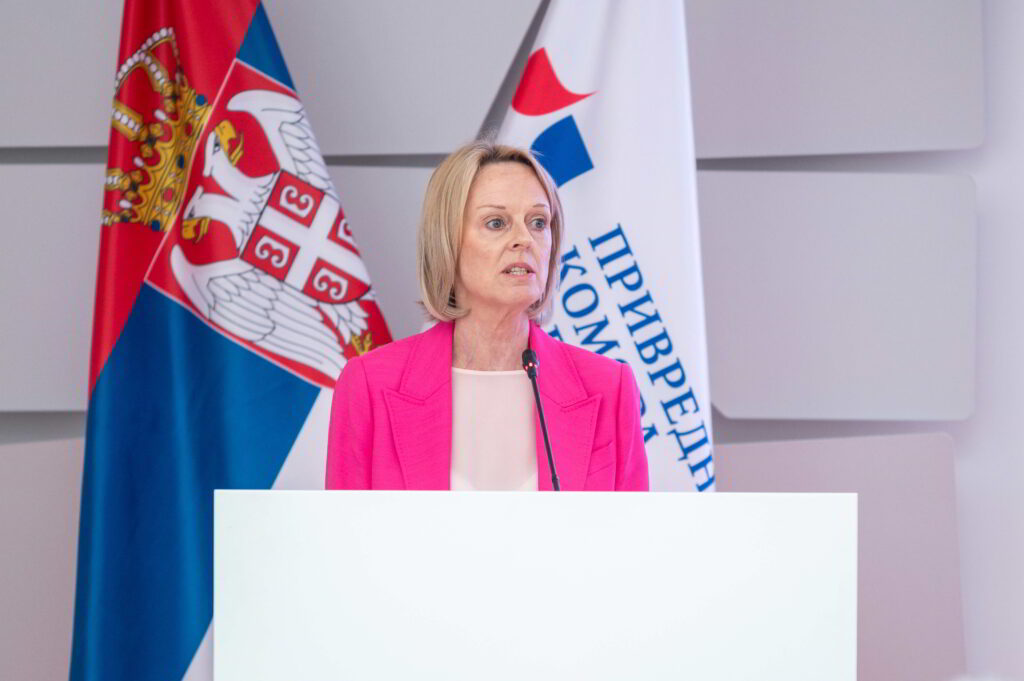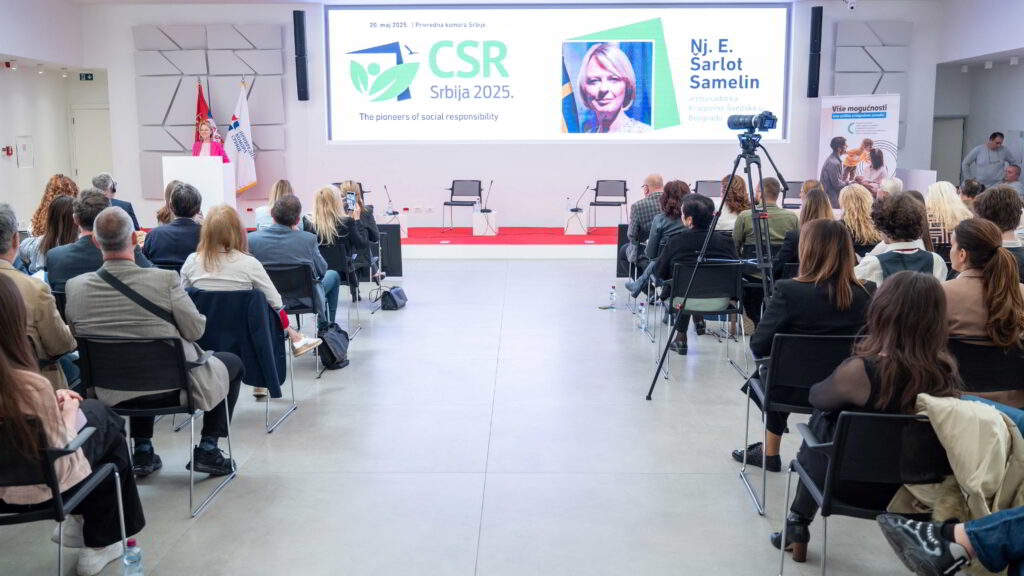How sustainable and responsible business became a cornerstone of Sweden’s economic and social model  At the CSR Serbia 2025 conference, held on May 20 at the Chamber of Commerce and Industry of Serbia, representatives of institutions, companies, and international organisations gathered to exchange experiences and policies related to corporate social responsibility. Speaking on behalf of the Embassy of Sweden, H.E. Charlotte Sammelin, Ambassador of Sweden, emphasised that for her country, sustainability is not a catchphrase—it is the foundation of both the societal and economic models. Below, we share her perspective on how responsible business can be a tool for building a fairer and more resilient society.
At the CSR Serbia 2025 conference, held on May 20 at the Chamber of Commerce and Industry of Serbia, representatives of institutions, companies, and international organisations gathered to exchange experiences and policies related to corporate social responsibility. Speaking on behalf of the Embassy of Sweden, H.E. Charlotte Sammelin, Ambassador of Sweden, emphasised that for her country, sustainability is not a catchphrase—it is the foundation of both the societal and economic models. Below, we share her perspective on how responsible business can be a tool for building a fairer and more resilient society.
In Sweden, we don’t just talk about Corporate Social Responsibility — we speak of Sustainable and Responsible Business that permeates every aspect of society. This is not an abstract framework or a political ornament; it is a reflection of our national ethos. We believe that economic success must be accompanied by social justice, environmental responsibility, and respect for human rights.
Sustainability is not a burden — it’s a catalyst
This is not a new idea. As early as 1976, Sweden was among the first countries to adopt the OECD Guidelines for Multinational Enterprises. Today, more than 570 Swedish companies are active participants in the UN Global Compact. In 2015, we took another key step by adopting a National Action Plan for implementing the UN Guiding Principles on Business and Human Rights.
These documents are not symbolic — they are operational tools. The Swedish government has introduced mandatory legal mechanisms to ensure transparency, risk assessment, and accountability in corporate conduct. One of today’s most important instruments is the EU Corporate Sustainability Reporting Directive (CSRD), which requires companies to report not only on financial performance but also on their social and environmental impact. Businesses must show how they affect people and the planet.
 The world is shifting — from cost-driven logic to value-driven strategy. Sustainability is no longer just a moral duty; it is a strategic advantage. Companies that prioritise sustainability prove to be more resilient, more innovative, and more trusted by both consumers and investors.
The world is shifting — from cost-driven logic to value-driven strategy. Sustainability is no longer just a moral duty; it is a strategic advantage. Companies that prioritise sustainability prove to be more resilient, more innovative, and more trusted by both consumers and investors.
In Sweden, sustainability is also deeply connected to family well-being — a core pillar of our social model. Many Swedish companies implement family-friendly workplace policies such as flexible working hours, generous parental leave, and childcare support. These are not just ethical choices — they are competitive advantages in the global talent race.
Economic success must go hand in hand with social justice, environmental responsibility, and human rights
Companies like IKEA exemplify this approach. Their sustainability efforts extend far beyond internal policies, supporting local communities through elderly care programmes, rural development, and initiatives that improve quality of life. All of this reflects a deeply rooted commitment to social cohesion.
Globally, the challenges are numerous. Climate change remains a top priority, followed closely by human rights, transparency, and the fight against corruption. The regulatory landscape is evolving rapidly — not only in the EU but worldwide — and the business sector must be ready to meet higher expectations and stricter standards.
 Yet let us be clear: regulation should not be viewed as a burden — it is a catalyst for growth. It levels the playing field, drives innovation, and ensures that sustainability becomes the norm, not the exception.
Yet let us be clear: regulation should not be viewed as a burden — it is a catalyst for growth. It levels the playing field, drives innovation, and ensures that sustainability becomes the norm, not the exception.
Ultimately, it is essential to emphasise that sustainability is a shared responsibility among governments, businesses, and civil society. Only together can we shape an economic environment that is not only competitive but also responsible, resilient, and future-ready.
Conferences such as CSR Serbia are crucial moments for learning from one another and taking the next step toward building a more just, inclusive, and sustainable world.